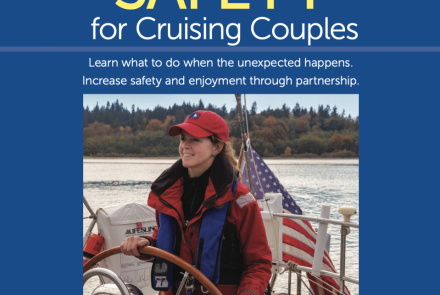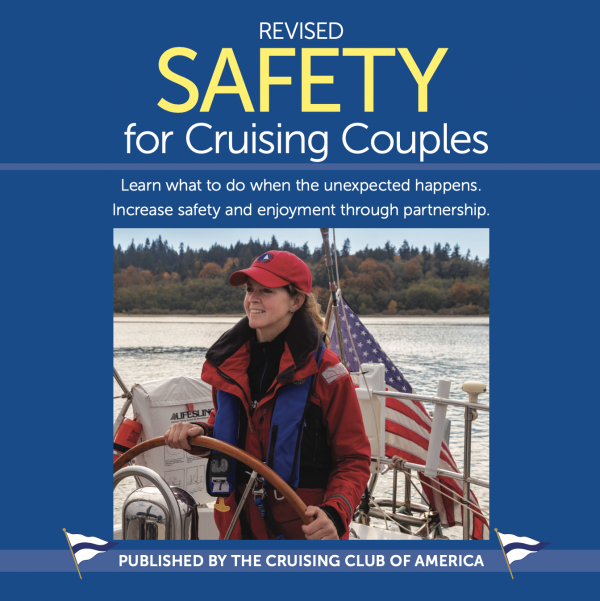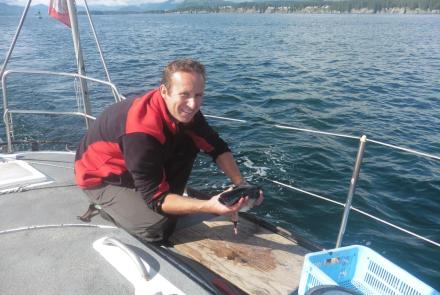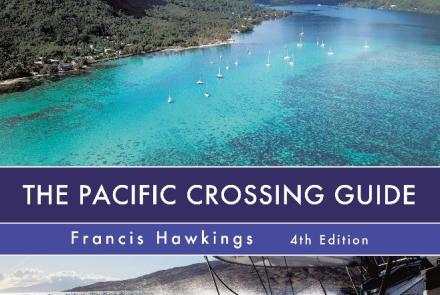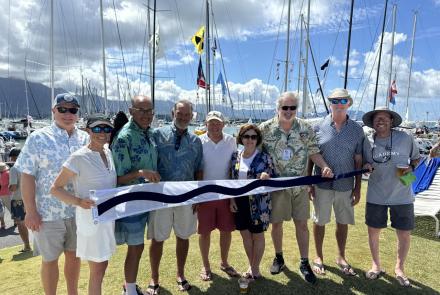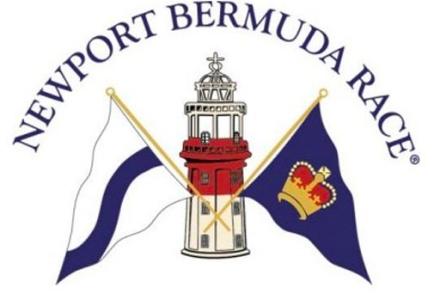Does your boating organization have an interest in safety on the water? It turns out that safety seminars can be effective online over an extended period or in person on a Saturday morning down at the clubhouse.
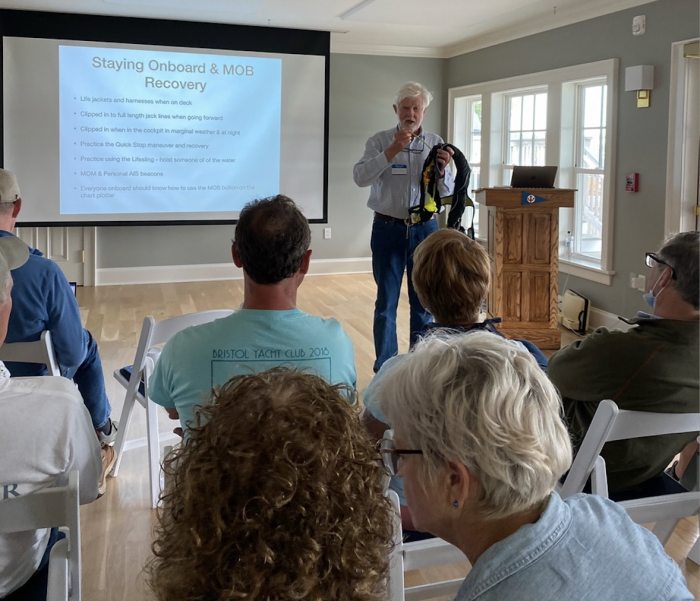
The Cruising Club of America (CCA) has a program called Safety for Cruising Couples (SCC) that offers a unique self-study opportunity for non-racing sail and power boaters. The concept is to ensure that the less-experienced crew members can perform the minimum tasks required to stop the boat, determine present position, and communicate the boat's location when requesting help following an incident that incapacitates the skipper.
A key part of the program is a revised Safety for Cruising Couples workbook released last year by the CCA, which has continued to sell well through the pandemic. The program also makes online presentations available at no cost for both a short (one-two hour) introduction and includes a more detailed course description for a day-long seminar that can include demonstrations and other additions, as determined by host club organizers.
Utilizing a variety of these materials to create both virtual and in-person events, clubs in Monterey, Calif., and Bristol, R.I., have recently found innovative ways to work with the text and create valuable events for members interested in going offshore. A key to getting the most from formats both virtual and in-person has been mixing the provided material with personal experience and discussion among those attending.
A Virtual Approach
Monterey Peninsula Yacht Club has a community of cruisers who are fully engaged in the social as well as sailing aspects of club life. When the pandemic forced closure of club gatherings, the “Cruisers’ Club” monthly meetings had already been slated for sessions to present the CCA’s Safety for Cruising Couples course to 15 couples.
Club organizers decided to pivot to a series of Zoom meetings, continuing interaction among members at the same time. Each chapter in the workbook was hosted by a different member, using the booklet for reference and the CCA’s PowerPoint presentation for each chapter, and then adding in personal slides and stories.
According to CCA member Dave MacEwen, who spearheaded the effort, “Each chapter started with the PowerPoint outline. Personal stories, explanations and discussions then made the overall experience more engaging and meaningful.” The group found two hours was a maximum time for each session, allowing for coverage of one or two chapters.
A bonus outcome of the course was the creation of a new shared Cruisers’ Club page in Google Docs for uploading and downloading personal safety forum examples similar to those in Chapter 5 of the CCA book.
As energizing and engaging as the course was, the group now plans additional, in-person courses such as MOB drills. The course material was not only effective online, it was also a productive and engaging way to stay connected with other sailors and friends, while maintaining extreme social distancing.
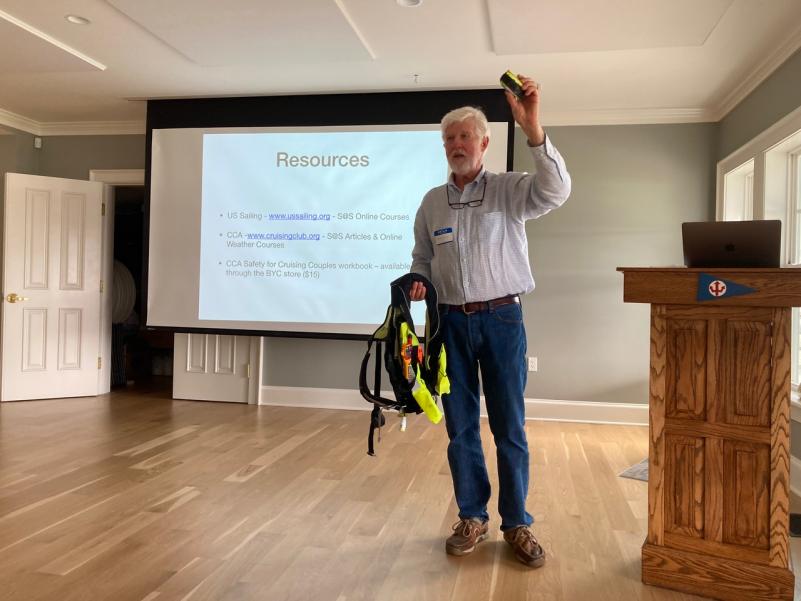
An In-Person Approach
Last spring, at Bristol Yacht Club in Rhode Island, CCA member Brian Guck led an in-person seminar based on the SCC booklet that was launched when the club started organizing a cruise to Maine and the head of the cruise committee asked Guck to give a talk on safety related to cruising back and forth to Maine.
Guck says he had already been giving the SCC booklet away to friends for some time and decided to use some of its format for the outline of his presentation. Guck’s cruising experience had been augmented by helping to run several of the CCA-sponsored Safety at Sea courses in Bristol in recent years, and he put together a program for 15 couples that focused on general safety issues and those specific to cruising in Maine.
Two of the couples had extensive experience cruising in Maine while the others had none and a few had never sailed their boats overnight. He says most of the audience members were competent local sailors ready to take on the challenge of sailing to Maine for the first time.
Guck said he thought his presentation would last an hour but it went over three! He said, “This turned into a very interactive session and I felt it was well received and appreciated by this group. There was a real thirst to learn about this trip from someone who has done it well over 20 times.”
The club had ordered 25 copies of the CCA booklet, sold all of them at the presentation, and now stocks the book at the club store.
Click on the image to read Cruisers' comments on the SCC program
More Safety Training for Cruisers
As a result of the COVID-19 restrictions during the past year, various organizations have adapted the SCC program for online and Zoom use. Presentations are available online at no cost for both a short (1-2 hour) introduction and a more detailed course description for a day-long seminar that can include demonstrations and other additions, as determined by host club organizers.
A four-minute podcast "Bring SCC to Your Group" describes the program background, and the revised text and workbook Safety for Cruising Couples can be ordered at www.cruisingclub.org/scc.
The materials available from the CCA as a public service are useful for couples aboard powerboats as well as sailboats. The Kadey Krogen Owners Group utilized the SCC material for a Zoom program which was presented for couples at their virtual rendezvous last October. Thirty eight individuals attended this event having purchased SCC Workbooks and using the CCA's Dropbox training materials."
TrawlerFest, the successful seminar program for couples on long distance cruising power boats, will have the program presented at their rendezvous in Newport, RI, Baltimore, MD, and Stuart, Florida this year.
A copy of this workbook should be on every coastal and near shore cruising boat. If your organization would like help in presenting a seminar, online or in person, contact the CCA through this link.
Thoughts on Safety for Cruising Couples
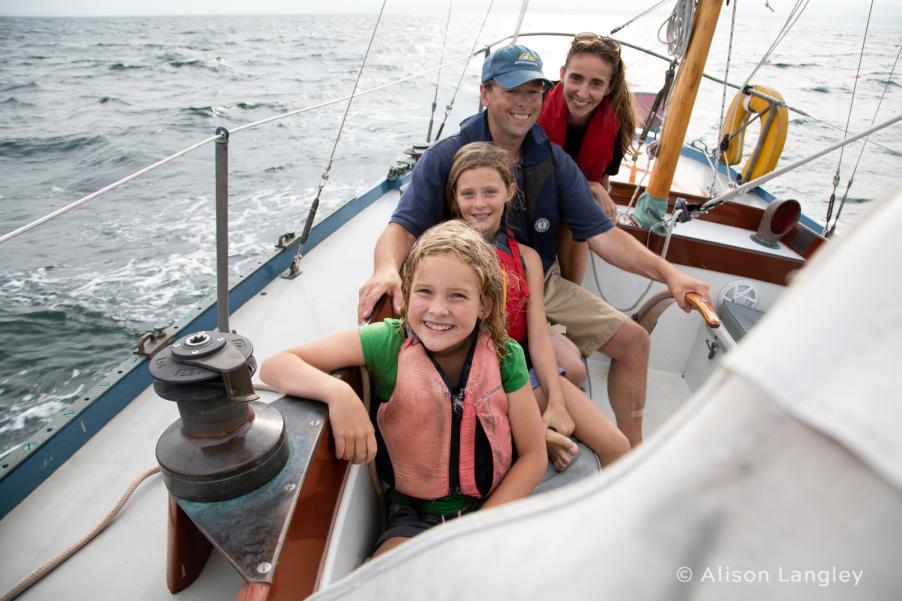
The Brainerds underway; credit: Alison Langley
The CCA has several testimonials from cruising couples on the value of the course. Members Alec and Erin Brainerd, of Rockport, Maine, offered the following reflection as encouragement to others to take part:
“Cruising as a couple requires great communication, flexibility and trust. However, without a basic skill set of boat handling and preparedness by both partners, all the communication in the world will not help in an emergency.
“The CCA’s commitment to continuing education and hands-on training for cruising couples is one of the primary reasons we joined. Developing action plans and practicing drills, with even our youngest crew members, has become an integral part of our time on the water, one that boosts our confidence, sharpens our skills and can even be fun!
“As in our life ashore, in most instances we have established tasks/ jobs on board. Trusting the other can handle an emergency enriches our sense of confidence and unity. As we continue to refine our skills, we particularly enjoy collaborating (sometimes commiserating) with other CCA members.”


